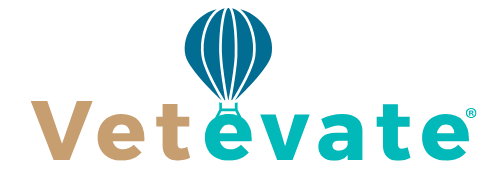When it comes to recruiting and hiring veterinarians and veterinary technicians, employers must first look for job boards that are specifically tailored to the veterinary profession. General job boards may offer a wide reach, but they often lack the industry-specific context that veterinary practices need. A platform designed exclusively for animal health careers understands the language, roles, certifications, and hiring expectations that come with veterinary positions. This relevance ensures that job postings are seen by the right audience—professionals who are passionate about animal care and qualified to work in clinical settings.
A job board focused on veterinary medicine typically features listings for a range of roles within the industry, from DVMs and vet techs to practice managers, receptionists, and specialists in emergency, exotic, or large animal medicine. The more focused the platform, the better the quality of applicants. When employers post to a board built for veterinary professionals, they aren’t wasting time filtering out irrelevant applications. Instead, they’re connecting with candidates who already understand the demands and dynamics of the veterinary field.
Industry-focused platforms also build a sense of community. Job seekers browsing veterinary-specific job boards are more likely to be serious about their search and invested in the profession. These platforms attract candidates who are looking for long-term roles, career advancement, or a better cultural fit. As a result, employers have a greater chance of making not just a hire, but a lasting, successful hire. For this reason, relevance to the veterinary profession should be a top priority when selecting a job board.
Tools That Streamline the Hiring Process
Time is always in short supply at veterinary clinics and hospitals. Between treating patients, managing operations, and maintaining client relationships, there’s often little room left for a long, drawn-out hiring process. That’s why the tools and features offered by a job board can make or break its effectiveness. Employers should look for job boards that streamline the recruitment process and allow them to move from posting to interviewing with minimal friction.
An ideal job board should offer an intuitive interface for creating and managing listings. It should allow for customization of job posts to include detailed descriptions, preferred qualifications, information about the practice, and clear instructions for applying. Some platforms even offer templates or guided prompts to help employers craft compelling posts that attract the right candidates. The easier it is to post a job, the more efficient the recruitment process becomes.
Beyond posting, employers should look for job boards that include applicant tracking tools. These features help organize resumes, track communications, and manage the hiring funnel from initial contact to final offer. Built-in messaging systems, calendar scheduling tools, and automated responses can save time and improve the candidate experience. Some platforms also offer screening features, such as custom questions or skills assessments, which allow employers to prequalify candidates before scheduling interviews.
A good job board should also support collaboration among hiring team members. The ability to share candidate profiles, make notes, and evaluate applicants as a group can improve hiring decisions and ensure that everyone involved in the process is aligned. This collaborative functionality reduces errors, shortens decision-making time, and leads to more consistent hiring outcomes.
Access to a High-Quality Talent Pool
No matter how efficient a job board is, its value ultimately depends on the quality of candidates it attracts. Employers should look for platforms that not only reach a large number of job seekers but also draw in professionals who are truly qualified and ready to work in veterinary roles. This is particularly important in a field where licensing, certifications, and hands-on experience are essential.
One of the best indicators of a job board’s candidate quality is its reach within the veterinary community. Does the platform partner with veterinary schools, associations, or continuing education providers? Is it known within the industry and recommended by peers? Employers should consider the job board’s reputation and visibility within the veterinary profession when making a selection. A strong network means better exposure for job postings and access to candidates who are engaged and invested in their careers.
In addition to active job seekers, some veterinary job boards maintain searchable candidate databases. These databases allow employers to proactively search for professionals based on qualifications, location, availability, and other factors. This can be especially helpful when a position needs to be filled quickly or when a highly specific skill set is required. The ability to connect with both active and passive candidates gives employers a competitive edge and increases the chances of finding the perfect match.
Employers should also look for platforms that provide demographic data, such as geographic distribution, education level, and years of experience. This information can help set realistic expectations for the hiring process and guide decisions about job requirements, compensation, and timelines. When employers understand the talent pool available to them, they can tailor their recruitment efforts accordingly.
Support, Insights, and Long-Term Value
Finally, employers should consider the level of support and long-term value that a veterinary job board can offer. A job posting is not a one-and-done transaction—it’s part of a larger hiring strategy that should be informed by insights, feedback, and continuous improvement. The best job boards act as partners in this process, offering customer support, analytics, and educational resources that help employers become better recruiters over time.
Strong customer support can be a game-changer, especially for small or independent veterinary practices that may not have dedicated HR staff. A responsive support team can help resolve technical issues, answer questions about the platform, and offer guidance on creating effective job listings. Whether through live chat, email, or phone support, employers should feel confident that help is available when needed.
Analytics and reporting tools are another valuable feature. Employers should be able to see how their job listings are performing—how many views they’re getting, how many applications have been submitted, and where applicants are coming from. These insights can inform decisions about future job postings, helping employers refine their approach and improve results with each new hire.
Many job boards also provide resources such as salary guides, hiring tips, and articles about trends in veterinary employment. These materials can help employers stay informed and competitive, particularly in a field that is evolving rapidly in response to workforce shortages, changing client expectations, and advances in veterinary care.
In the long term, the value of a job board is measured not just by how quickly it fills a position, but by the quality and longevity of the hires it helps employers make. The right job board will support not only the immediate need to fill a vacancy but also the broader goal of building a strong, cohesive veterinary team. Employers should look for platforms that demonstrate a commitment to this long-term value—ones that understand the veterinary profession, offer helpful tools and resources, and continuously work to connect great clinics with great people.
Choosing the right job board is a critical step in the hiring journey. By prioritizing relevance, functionality, candidate quality, and ongoing support, veterinary employers can ensure they are setting themselves up for success—not just with their next hire, but with every hire that follows.




